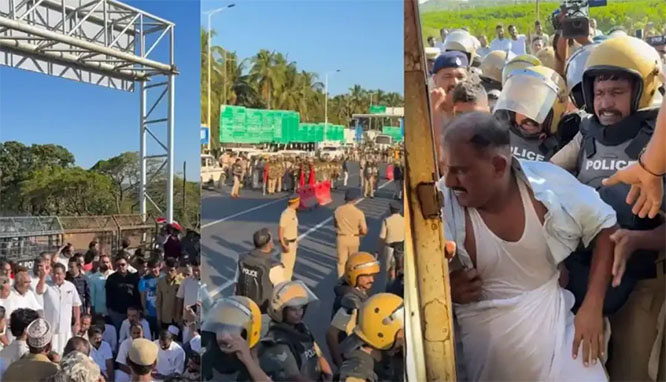Two more legislators, belonging to the Apna Dal, an ally of the BJP, have resigned just ahead of the Uttar Pradesh Assembly elections scheduled to take place next month.
Following his resignation, Chaudhary Amar Singh said: "This government is a liar and no development has been done. I met Akhilesh Yadav and will join him. Soon more people will join us."
He is likely to contest his Shohratgarh seat in Siddhartha Nagar on an SP ticket.
The other Apna Dal MLA R K Verma, who represents the Vishwanath Ganj seat of Pratapgarh, also announced that he is leaving the party.
Both the legislators blamed the Yogi Adityanath government for their leaving the alliance.
With the two new resignations, a total of 12 MLAs from the ruling alliance in Uttar Pradesh have quit, blaming the state government of being anti-backward.
Ten BJP MLAs, including three ministers, have quit the BJP since Tuesday.
It started with the exit of top minister Swami Prasad Maurya, followed by three MLAs close to him on the same day - Bhagwati Sagar, Roshan Lal Verma, and Brijesh Prajapati.
On Wednesday, another state minister Dara Singh Chauhan and MLA Avatar Singh Bhadana quit. Bhadana joined the RLD, an ally of the SP.
On Thursday, Minister Dharam Singh Saini, and three other BJP MLAs - Vinay Shakya, Mukesh Verma and Bala Awasthi - also left the party.
All three ministers who have quit are key OBC (Other Backward Class) leaders, claiming that the interests of the community are being neglected.






Comments
Add new comment